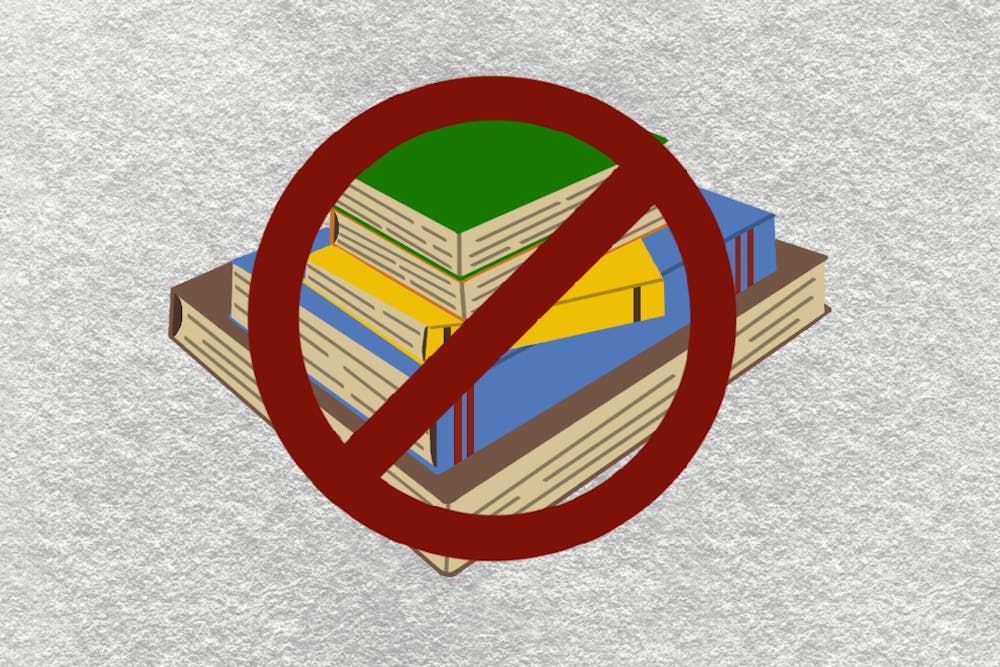Since 2020, an uptick in banning books nationwide has made Banned Books Week more relevant than ever, as libraries across the Phoenix metro area host events and raise awareness about book banning.
According to the American Library Association, the number of unique titles challenged in 2023 increased by 65% from the previous year.
"Book banning is as American as apple pie," said Katie Tay, a library assistant at the Phoenix Public Library who graduated from ASU in 2011. "Book bans have been around since western European settlers showed up here in the 1630s."
Books that often appear in ALA's Top 10 Most Challenged Books include: "Harry Potter," "To Kill A Mockingbird," "The Holy Bible," "The Perks of Being a Wallflower" and "The Hate U Give." The most frequently cited reasons for a challenge are because a book contains sexually explicit content, offensive language, or is unsuitable for any age group.
In 2023, "Gender Queer: A Memoir" by Maia Kobabe was the most challenged book of the year, receiving 106 requests for removal due to claims of having LGBTQ+ content and being sexually explicit, according to the ALA website.
"What makes it even more difficult is that they’re using these descriptors like obscene or explicit," said Anna Chenoweth, a librarian at the Phoenix Public Library who graduated from ASU in 2011. "My definition of explicit is completely different than every single person in this room and there might be someone who comes in and they deem it explicit but it really isn’t."
In Arizona, school districts are required to post lists of the books they plan to buy, which are available to the public 60 days prior to purchase. While listed, anyone can challenge the books.
"You don’t have to have a kid in school," Tay said. "But you can protest and say 'No I don’t want that book purchased' and they have to listen to you."
Books purchased for the Phoenix Public Library are inspected by a committee of librarians using the Library Bill of Rights, a document outlining basic services libraries provide and materials it should contain. The Phoenix Public Library does not publicly post the purchase list.
"It has been our bible basically to fight book bans and to protect freedom of speech going forward," Tay said.
In order for a book to be banned at the Phoenix Public Library, it must first be challenged formally by a member of the public who has read the whole book and outlined the sections they find offensive. The form, on public record, is reviewed by librarians who determine if the book should be removed.
Chenoweth said the Phoenix Public Library has only received a handful of requests for removal in the past few years but has reclassified multiple books. Library systems use reclassifying as a tool to ensure a book is being accurately cataloged and will often move a book to the section deemed appropriate.
"The first three books in the 'Harry Potter' collection are in our children’s section and then the last four are in our teen section," Tay said. "Because Harry grows up, he becomes a teenager and he deals with more heavy stuff."
Book banning is less prevalent in libraries outside of public school districts. Many universities and public libraries have a section dedicated to offering books banned at other places. At ASU students can find traditionally banned books in the ASU Library Guide or at the Hayden Library.
ASU hosted multiple events throughout Banned Books week, such as Banned Books Trivia Night, at the Hayden Library for students to learn about book banning and frequently challenged books in schools and libraries.
"In Arizona, this is really impacting our student libraries a lot more than impacting public libraries," Chenoweth said. "But that's not to say that that could change."
Correction: A previous version of the caption stated that Katie Tay graduated from ASU in 2012. This has been corrected as of 2:55 p.m. on Sept. 27, 2024.
Edited by Senna James, Sophia Ramirez, Tiya Talwar and Natalia Jarrett.
Reach the reporter at allipper@asu.edu and follow @lippert_audrey on X.
Like The State Press on Facebook and follow @statepress on X
Audrey is a sophomore studying journalism and mass communication with a minor in Spanish. This is her first semester with The State Press. She has also worked at Blaze Radio.




